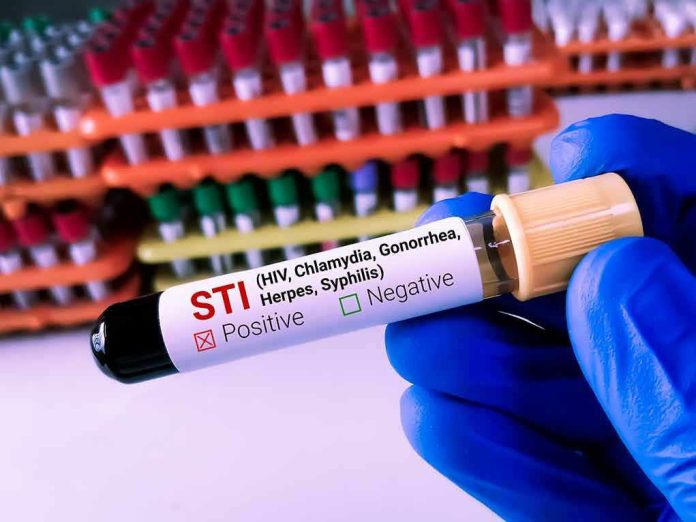
The alarming rise in HIV cases due to unsafe drug practices underscores the urgent need for robust public health strategies.
Story Highlights
- Blood-sharing among drug users drives global HIV surge.
- Fiji and Pakistan face severe outbreaks due to unsafe practices.
- Lack of harm reduction programs exacerbates the crisis.
- Cultural and political barriers hinder effective responses.
Global HIV Surge Tied to Unsafe Drug Practices
Recent data highlights a troubling trend: the rise of blood-sharing among people who inject drugs (PWID) is significantly increasing HIV infections globally. Regions like Fiji and Pakistan have seen sharp increases in cases, attributed to unsafe injection practices and a lack of harm reduction programs. Governments are under pressure as the epidemic spreads beyond traditional high-risk groups, affecting broader communities.
Fiji and Pakistan: Case Studies of a Growing Crisis
In Fiji, HIV cases increased tenfold since 2014, correlating with heightened drug use and absence of needle-syringe programs. As of 2025, the country declared an official HIV outbreak but faces challenges implementing effective harm reduction strategies due to cultural resistance. In Pakistan, the situation is similarly dire, with repeated outbreaks since 2003 and ongoing transmission due to unsafe practices.
Despite efforts, both countries struggle with underreporting and inadequate surveillance, complicating efforts to control the spread. The need for targeted prevention, especially for spouses and non-commercial partners, is critical to stem the tide of new infections.
Need for Comprehensive Public Health Response
UNAIDS and health experts call for urgent implementation of harm reduction strategies, including needle-syringe distribution and educational campaigns. These measures are crucial not only to curb current outbreaks but also to prevent potential generalized epidemics. However, cultural and political obstacles present significant challenges to these efforts, requiring engagement with community and religious leaders to overcome resistance and promote public understanding.
Implications and the Way Forward
The short-term impact of rising HIV cases includes strained health systems and increased mortality. Long-term, there is a risk of the epidemic spreading to the general population, particularly through unsafe medical practices. Economic costs are expected to rise, adding pressure on governments to respond effectively. The situation underscores the need for international aid and advocacy to support local efforts in combating this health crisis.
Sources:
UNAIDS: Fiji’s Response to HIV Outbreak
HIV Outbreaks in Pakistan: A Public Health Challenge




